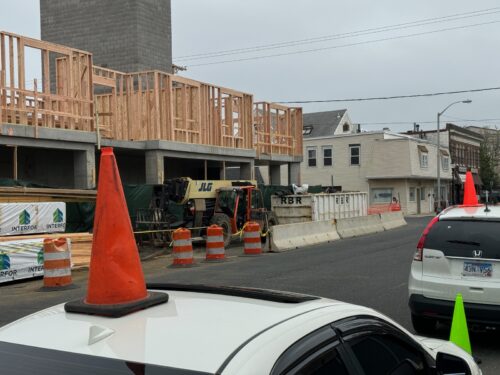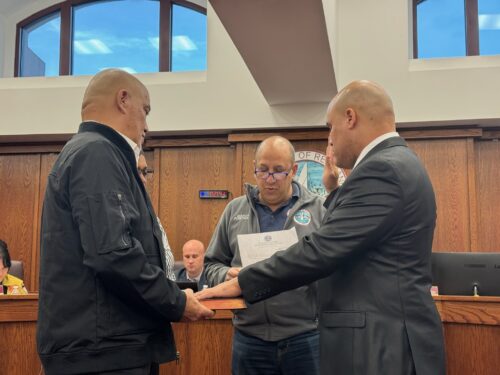Dale Connor, the tax court clerk in Fair Haven, is getting a new office.
Not a bigger one. A second one, right next to the workspace she already uses. And she’ll be required by the state’s highest court to split her time between the two.
According to today’s Asbury Park Press, the New Jersey Supreme Court ruled Wednesday that Connor can continue to serve as both the borough’s tax collector and its municipal court clerk as long as she does the jobs in different workspaces.
She’s been working part-time in both jobs since at least 1980, according to an earlier report. And as far back as 1994, the court had given her he thumbs-up to continue doing so, even though she was the last of a breed in Monmouth County: a court clerk who also had administrative duties in local government.
But the state judiciary itself decided to challenge the arrangement earlier this year. In a July 27 story (archived), Press reporter Larry Higgs wrote that Superior Court Judge Lawrence M. Lawson, the Monmouth Vicinage’s assignment judge
said it is necessary to keep the two functions separate, because a court administrator is technically an employee of the court system, while the tax collector works for the mayor and town.
“If you get cited for not cutting your grass, go to court and lose and then go to pay your fine and find the court administrator sitting in the same office with the inspector who wrote the summons … it’s the aura of impropriety,” Lawson said. “It’s the perception. You can’t have the court administrator in the same office with the zoning and building inspector (who wrote the summons).”
In an op-ed that he wrote for the Press in June, Mayor Mike Halfacre wrote that the state court’s Advisory Committee on Outside Activities of Judiciary Employees initiated the action. The committee, he wrote,
argues that “holding a high-level office in municipal court, as well as a high-level position in municipal government, would impair an individual’s impartiality and independence in performing his/her court duties.”
However, in more than 27 years of [Connor] performing both duties, there is no record of any complaints dealing with impartiality or independence. There have been no complaints and no accusations of any impropriety or wrongdoing.
Moreover, in 1993, the Administrative Office of the Courts granted Connor “specific authority” to hold both positions, a grant it tried to revoke earlier this year.
Halfacre argued that the move was unfair to both the town and to Connor. Fair Haven, he said, would have to hire another employee to replace Connor in one of her jobs, at greater expense, and she would lose income.
“Simply put, she is a bargain for our municipality,” Halfacre wrote in his op-ed.
According to today’s story, Wednesday’s decision found that
holding the position of tax collector and court administrator was not a conflict of interest. The court said the crux of the issue was that court equipment, telephones and office space cannot be used for “non-judicial employment” and noted that Connor carries out the duties of both positions from one office and uses one phone line.
The court gave Fair Haven 45 days to put in separate telephone lines and build separate offices for the tax collector and court administrator.
[Borough Administrator Mary] Howell said the telephone lines already are installed and that an architect is working on plans for the offices, which will likely be built by the Department of Public Works to keep costs down, she said.
“We were celebrating” after hearing the news, Howell told the Press.






















